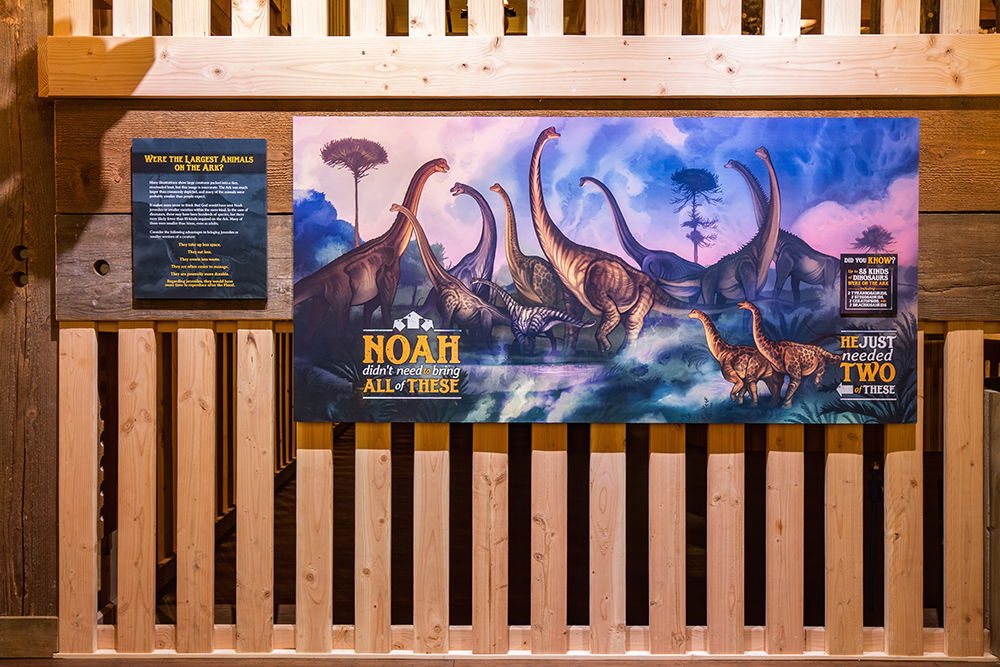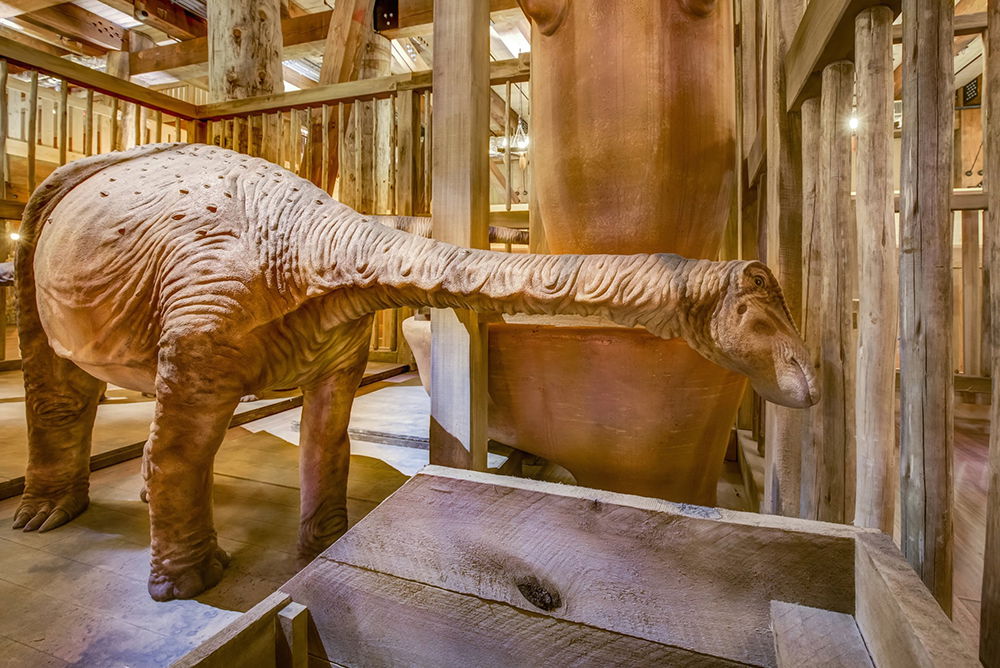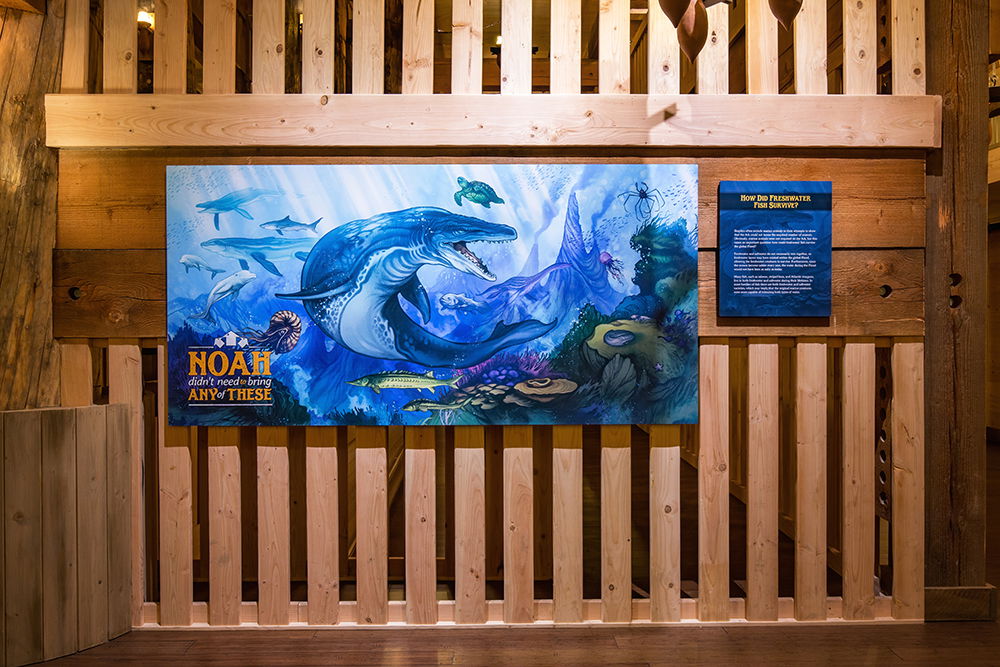Could Dinosaurs Have Been on the Ark?
by Ark Encounter on August 7, 2025Why would we put dinosaurs on our life-size Noah’s Ark? We often get this question at the Ark Encounter, so our social media team recently sat down with Dr. Tim Chaffey, speaker and manager of content, to answer it.
But what about dinosaurs like the T. rex? Wouldn’t they have just run around eating everything on the ark? No, they would not have!
Were the Largest Animals on the Ark?
Many ark illustrations show large creatures packed into a tiny, overloaded boat, but this image is inaccurate. The ark was much larger than commonly depicted, and many of the animals were probably smaller than expected.

It makes more sense to think that God would have sent Noah juveniles or smaller varieties within the same kind. In the case of dinosaurs, there may have been hundreds of species, but there were likely fewer than 85 kinds required on the ark. Many of them were smaller than bison, even as adults.
Consider the following advantages to bringing juveniles or smaller versions of a creature:
- They take up less space.
- They eat less.
- They create less waste.
- They are often easier to manage.
- They are generally more durable.
- Regarding juveniles, they would have more time to reproduce after the flood.

How Did Freshwater Fish Survive?
Skeptics often include marine animals in their attempts to show that the ark could not house the required number of animals. Obviously, marine animals were not required on the ark, but this raises an important question: how could freshwater fish survive the global flood?

Freshwater and saltwater do not necessarily mix together, so freshwater layers may have existed within the global flood, allowing the freshwater creatures to survive. Furthermore, since the oceans become saltier every year, the water during the flood would not have been as salty as it is today.
Many fish, such as salmon, striped bass, and Atlantic sturgeon, live in both freshwater and saltwater during their lifetimes. In most families of fish, there are both freshwater and saltwater varieties, which may imply that the original marine creatures were more capable of tolerating both types of water.
Start planning your visit to the Ark Encounter today, and learn more about what animals might have been included on Noah’s ark. There are also a variety of articles and resources on the Answers in Genesis website related to these topics and more to help you prepare for your Ark trip or dig deeper when you get home!